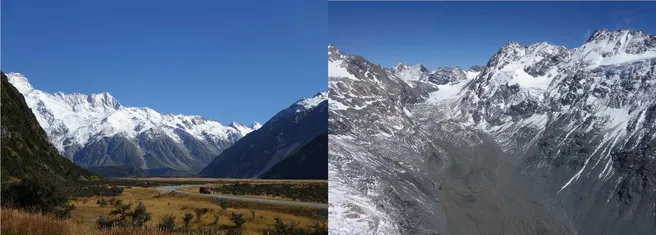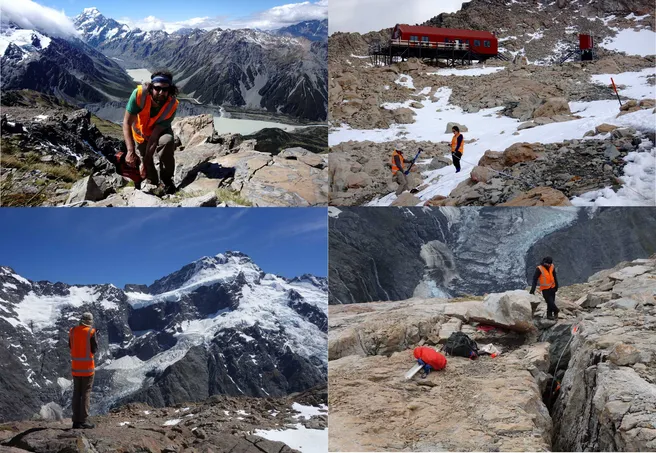At the beginning of 2017, the Mueller rockslide was investigated within the “Alpine Rock Slopes” project funded by the German Research Foundation and the project “Investigation of a large, alpine rock slope failure: Mueller Rockslide, New Zealand” funded by the Massey University Research Fund. The research was led by Sam McColl (Massey University) and the team consisted of Daniel Draebing (TUM), Simon Cook (University of Dundee), Emma Cody (Massey University) and Jana Eichel (Karlsruhe Institute of Technology). Aim of the fieldwork is to investigate the (1) geotechnical controls of the Mueller Rockslide using geological and geotechnical mapping and refraction seismic. The rock slope movement affects the Mueller glacier downslope and potentially the Mueller hut upslope. A publication addressing this objective is currently in preparation. Furthermore, the project aims to (2) monitor continuously the rock slope kinematics using Structure-for-Motion techniques on UAV orthophotos and crackmeters as well as reconstruct long-term kinematics using 10Be dating. To continue the monitoring of the rock slope failure, a second fieldwork campaign in 2018 is in preparation.
The fieldwork took place in the Mount Cook Area (upper left image) and investigates the Mueller Rockslide (left part of the upper right image). The fieldwork team installed a geophysical transect (middle left image) and conducted a refraction seismic survey (middle right image) to investigate the geotechnical controls. To monitor rock slope kinematics, orthophotos were conducted using UAV flights (lower left image) and crackmeters (see installation in the lower right image). Photo credits: upper and lower images by Daniel Draebing, middle images by Jana Eichel.

